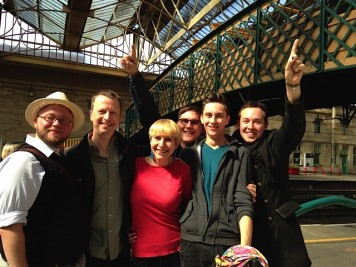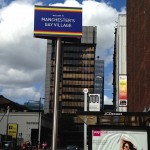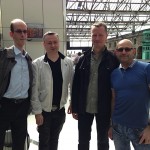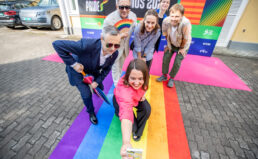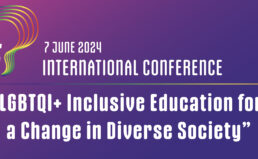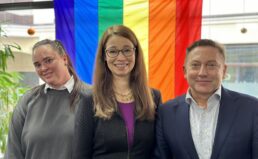Life stories and confessions of intersex activists, professional experiences of counseling and therapy, insights into UK based LGBT*IQ organizations, best practices, brainstorming sessions and a number of other formal and non-formal activities – all of this happened on July 2-6, 2014, when representatives of LGL participated to a QuPiD Project partners meeting in Carlisle, UK.
QuPiD, Queer Paths into Diversity is an international project aiming at the cooperation of organizations fighting the discrimination based on sexual orientation and gender identity. The project is meant to share the best practices and to implement adequate political adult education into the organizations’ agenda. Throughout the project, partners are encouraged to take a critical look at the theoretical and practical work methods they apply in their work in order to achieve an adequate level of education in their communities and in the heteronormative majority in society.
The project QuPiD involves six partners from five countries: the Campaign Against Homophobia, KPH (Poland), Lithuanian Gay League, LGL (Lithuania), Verein Niedersächsischer Bildungsinitiativen, VNB e.V. (Germany), Stiftung Akademie Waldschlösschen, AW (Germany) Gay Older Brothers and Sisters, GOBS (United Kingdom) and the Malta Gay Rights Movement, MGRM (Malta). In Carlisle partners organizations took part in the third of the six meetings of the project, and the question around which all the activities revolved was: “What makes an excellent LGBT*IQ counseling?”.
The four days of activities brought it a number of guests from Carlisle and neighboring cities who shared their specialized experiences in various fields. Participants heard about the challenges faced by Debbie Woods in addressing transgender needs through counseling and assistance, and the director of the UK Intersex Association fascinated the audience with his life story as an intersex person. The LGBT Youth Scotland spokesperson presented the sometimes overwhelming difficulties faced in their work with LGBT*IQ individuals, especially among youth and in smaller towns. After these inspiring interventions, project partners from Germany, Lithuania, Malta and Poland shared their best practices and the specific challenges they face in their respective countries.
The focus of the meeting was on professional and peer-to-peer counseling and on the analysis of differences and similarities between different contexts, especially when it comes to a professional code of ethics, experience, skills, and training. During the discussions on the subject many differences between countries and contexts emerged. For example, while the UK saw the development of a state-supported assistance system and of a network of support for LGBT*IQ people, as well as many formal or informal services through which LGBT*IQ persons are directed to medical institutions when necessary, Lithuania lacks both public and private institutions providing a similar system of support. Only non-governmental organizations are active in this field, and there are no specialized services of assistance or counseling for LGBT*IQ persons. The meeting concluded with a positive note in our heads, after hearing the experiences of the other partner organizations: even when a supporting system of assistance is underdeveloped, there is a reasonable perspective for improvement.

